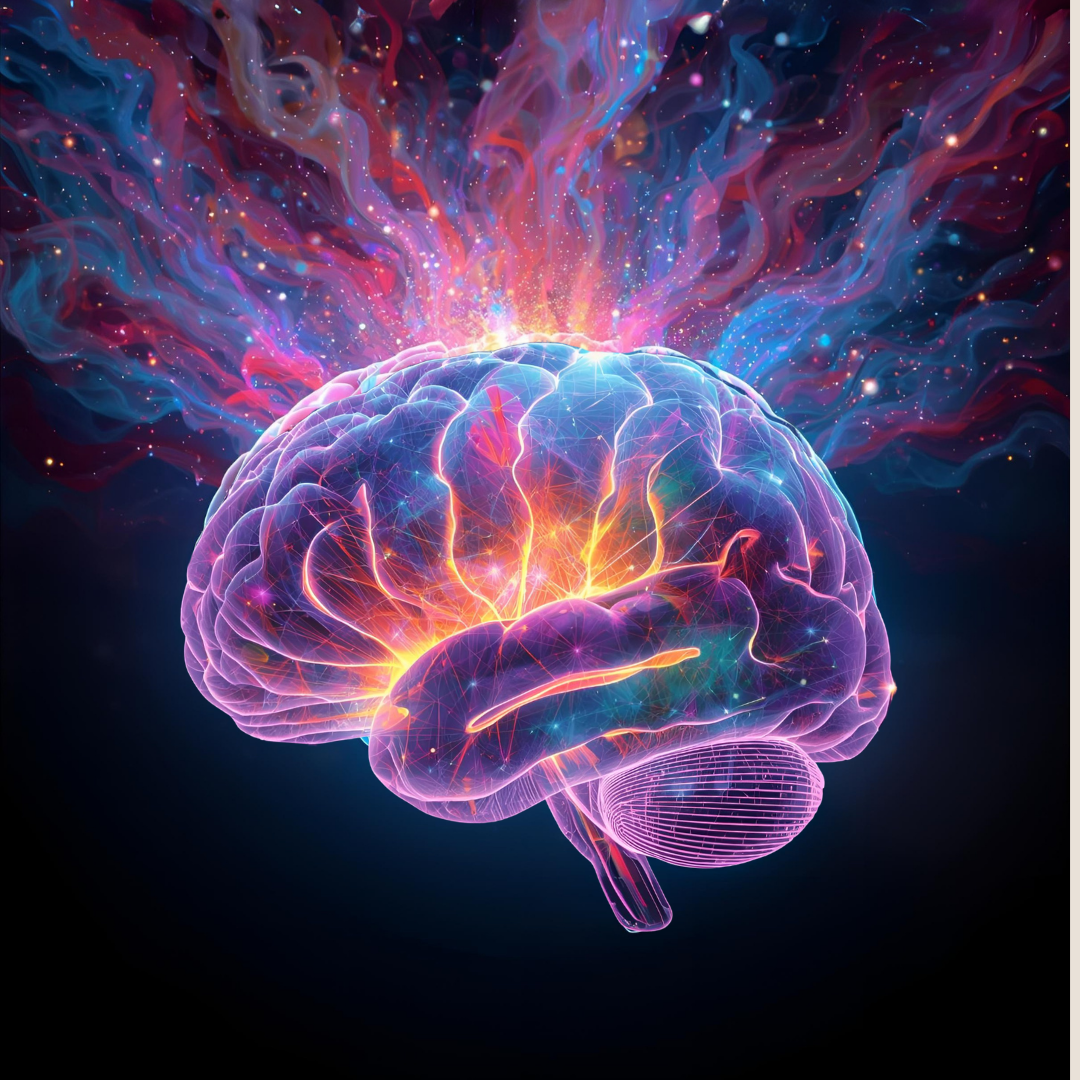Understanding Anxiety, Sleep Troubles, and Depression: Health Impacts and Strategies for Improvement

In our increasingly fast-paced world, anxiety, sleep disturbances, and depression have become common challenges affecting millions. These conditions not only impact mental well-being but also have profound effects on physical health.
According to the National Study of Mental Health and Wellbeing (2020–2022), nearly half of all Australians have experienced a mental illness at some point in their lives. However, due to many cases going undiagnosed or unreported, the actual number of individuals living with impaired mental health is likely significantly higher.
Understanding the interplay between these issues and recognising the role of genetics can empower individuals to take proactive steps toward improvement.
The Interconnection Between Anxiety, Sleep Troubles, and Depression
Anxiety, sleep problems, and depression often coexist, each potentially exacerbating the others. For example:
- Anxiety can lead to sleep disturbances, which may contribute to depressive symptoms.
- Sleep deprivation can heighten anxiety levels and negatively affect mood.
- Depression often manifests with both anxiety and insomnia as symptoms.
This cyclical relationship means addressing one issue can positively influence the others.
Health Impacts of These Conditions
- Physical Health Consequences
- Cardiovascular Issues: Chronic anxiety and depression can increase the risk of heart disease and hypertension1.
- Weakened Immune System: Stress hormones like cortisol can suppress immune function, making the body more susceptible to infections2.
- Chronic Pain: These mental health conditions are associated with conditions like fibromyalgia and chronic back pain3.
- Cognitive and Emotional Effects
- Impaired Cognitive Function: Sleep disturbances and depression can affect memory, concentration, and decision-making4.
- Emotional Dysregulation: Heightened irritability, mood swings, and difficulty managing emotions are common5.
- Impact on Daily Functioning
- Reduced Productivity: Mental fatigue and lack of focus can hinder performance at work or school6.
- Social Withdrawal: Anxiety and depression can lead to isolation from friends and family, affecting relationships7.
The Role of Genetics
Genetics significantly influence an individual's susceptibility to anxiety, sleep disorders, and depression.
Heritability Estimates:
- Anxiety Disorders: Approximately 30-50% heritable8.
- Depression: Around 40% heritable, with higher rates for severe cases9.
- Sleep Disorders: Insomnia has a heritability estimate of about 38%10.
Key Genetic Factors:
- Serotonin Transporter Gene (SLC6A4): Variations can affect serotonin levels, influencing mood regulation and risk of anxiety and depression11.
- Circadian Rhythm Genes (CLOCK, PER3): Variations can disrupt sleep patterns and influence sleep disorders12.
- Brain-Derived Neurotrophic Factor (BDNF) Gene: Affects neuron growth and plasticity; certain variants are linked to depression13.
Personalised Strategies for Improvement
Personalised strategies can effectively target mental health by tailoring interventions to an individual's unique genetic makeup, biological factors, and lifestyle, thereby enhancing the efficacy of treatments and promoting overall well-being.
- Lifestyle Modifications
- Regular Exercise: Physical activity releases endorphins, which act as natural mood lifters. Studies show exercise can reduce symptoms of anxiety and depression15.
- Healthy Diet: Consuming omega-3 fatty acids, vitamins, and minerals supports brain health. Diets rich in fruits, vegetables, and whole grains are beneficial16.
- Sleep Hygiene: Establishing a regular sleep schedule, creating a restful environment, and limiting screen time before bed can improve sleep quality17.
- Gut Health
- Gut-Brain Axis: Gut health significantly influences anxiety, depression, and sleep troubles via the gut-brain axis. Approximately 90% of serotonin, a neurotransmitter associated with feelings of well-being, is produced in the gut, as well as GABA. Imbalances in gut microbiota can disrupt neurotransmitter production, affecting mood and sleep quality.
- Personalized Nutrition: Improving gut health through personalized diet, probiotics, and prebiotics may enhance mental well-being.
- Genetic Influences: Genetic variations can affect how your body processes nutrients essential for mental health, such as folate and vitamin B12, as well as sensitivities or intolerances that impact gut health.
- Psychological Therapies
- Cognitive Behavioural Therapy (CBT): Effective in treating anxiety and depression by addressing negative thought patterns and behaviors18.
- Mindfulness-Based Stress Reduction (MBSR): Involves meditation and yoga to reduce stress and improve psychological well-being19.
- Tailored Therapy Modalities: Personalized therapy methods (e.g., CBT, DBT, EMDR) can be selected based on individual responsiveness, potentially linked to genetic factors.
- Social Support
- Therapy Groups: Sharing experiences with others can provide relief and coping strategies.
- Strong Personal Relationships: Support from friends and family is crucial for recovery.
- Stress Management Techniques
- Relaxation Exercises: Techniques like deep breathing, progressive muscle relaxation, and guided imagery can reduce stress levels20.
- Time Management: Prioritising tasks and setting realistic goals can alleviate feelings of being overwhelmed.
- Variations in genes like COMT influence stress resilience. Personalized stress reduction techniques such as mindfulness, meditation, or yoga can be more effective based on these insights.
- Sleep Optimization Based on Genetic Tendencies:
- Circadian Rhythm Alignment: Variations in genes such as CLOCK and PER3 affect sleep patterns. Understanding these can help in scheduling sleep times that align with your natural rhythms, improving sleep quality.
- Supplements
- Supplements can play a supportive role in managing anxiety, depression, and sleep disturbances by addressing nutritional deficiencies and promoting biochemical processes essential for mental health.
- Certain nutrients, such as omega-3 fatty acids, B vitamins, magnesium, and vitamin D, have been associated with improved mood regulation and stress response, and impacts differ depending on individuals’ genetic requirements.
- Herbal supplements like St. John's Wort, ashwagandha, which are found in MyCare: Calm, and valerian root have been studied for their potential to alleviate symptoms of anxiety and depression and to improve sleep quality.
Anxiety, sleep troubles, and depression are complex conditions with significant health impacts. Recognising the role of genetics in these issues opens the door to personalised and more effective strategies for improvement.
Empower yourself by understanding your genetic makeup and taking proactive steps toward better mental health. With the right tools and support, you can enhance your well-being and quality of life.
At MyGene, we're dedicated to helping you understand your genetic predispositions to mental health conditions. Our personalised genetic testing services provide insights that can guide you toward effective strategies for managing anxiety, improving sleep, and alleviating depression symptoms. T
ake control of your mental health today with evidence-based, personalised solutions.
Get started on your foundational personalised health program today
Disclaimer: This article is for informational purposes only and is not a substitute for professional medical advice. Always consult a qualified healthcare provider regarding your health and well-being.
References
- Chida, Y., & Steptoe, A. (2010). The association of anger and hostility with future coronary heart disease. Journal of the American College of Cardiology, 56(1), 38–46.
- Glaser, R., & Kiecolt-Glaser, J. K. (2005). Stress-induced immune dysfunction. Nature Reviews Immunology, 5(3), 243–251.
- Goesling, J., Clauw, D. J., & Hassett, A. L. (2013). Pain and depression. The Journal of Pain, 14(9), 901–907.
- Beattie, L., Kyle, S. D., Espie, C. A., & Biello, S. M. (2015). Social interactions, emotion and sleep. Neuroscience & Biobehavioral Reviews, 47, 540–555.
- Tusaie, K., & Dyer, J. (2004). Resilience: A historical review of the construct. Holistic Nursing Practice, 18(1), 3–10.
- Stewart, W. F., et al. (2003). Cost of lost productive work time among US workers with depression. JAMA, 289(23), 3135–3144.
- Wang, J. L., et al. (2010). Depression and anxiety among university students. American Journal of Orthopsychiatry, 80(1), 61–71.
- Gottschalk, M. G., & Domschke, K. (2017). Genetics of generalized anxiety disorder. Psychiatric Clinics, 40(4), 549–564.
- Flint, J., & Kendler, K. S. (2014). The genetics of major depression. Neuron, 81(3), 484–503.
- Drake, C. L., et al. (2014). Vulnerability to insomnia. Sleep Medicine Clinics, 9(2), 179–188.
- Hariri, A. R., & Holmes, A. (2006). Genetics of emotional regulation. Trends in Cognitive Sciences, 10(4), 182–188.
- Hu, Y., et al. (2016). Association between circadian rhythm gene polymorphisms and sleep disorders. Sleep Medicine, 19, 68–74.
- Notaras, M., Hill, R., & van den Buuse, M. (2015). The BDNF gene Val66Met polymorphism as a modifier of psychiatric disorder susceptibility. Translational Psychiatry, 5(10), e499.
- Hicks, J. K., Swen, J. J., Thorn, C. F., & Sangkuhl, K. (2013). Clinical Pharmacogenetics Implementation Consortium guidelines. Clinical Pharmacology & Therapeutics, 93(4), 321–325.
- Stubbs, B., et al. (2017). EPA guidance on physical activity as a treatment for severe mental illness. European Psychiatry, 46, 54–60.
- Sarris, J., et al. (2015). Nutritional medicine as mainstream in psychiatry. The Lancet Psychiatry, 2(3), 271–274.
- Irish, L. A., Kline, C. E., Gunn, H. E., Buysse, D. J., & Hall, M. H. (2015). The role of sleep hygiene in promoting public health. Sleep Medicine Reviews, 22, 23–36.
- Hofmann, S. G., Asnaani, A., Vonk, I. J., Sawyer, A. T., & Fang, A. (2012). The efficacy of cognitive behavioral therapy. Cognitive Therapy and Research, 36(5), 427–440.
- Khoury, B., et al. (2013). Mindfulness-based therapy. Journal of Psychosomatic Research, 75(6), 504–510.
- Manzoni, G. M., Pagnini, F., Castelnuovo, G., & Molinari, E. (2008). Relaxation training for anxiety. Clinical Psychology Review, 28(6), 1–10.






